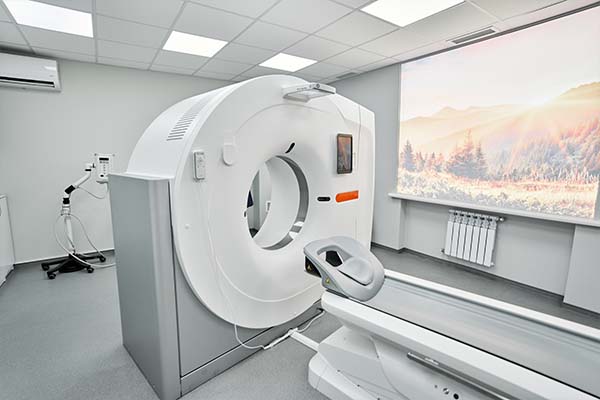
Importance of cardiac MRI in Heart failure
Heart failure is a chronic condition that affects millions of people around the world. It occurs when the heart is unable to pump enough blood to meet the body's demands. The condition can result from a wide range of causes, including coronary artery disease, hypertension, and valvular heart disease, among others. While there are several diagnostic tools available to assess heart function, cardiac MRI is emerging as a critical tool for the diagnosis and management of heart failure.
Cardiac MRI is a non-invasive imaging technique that uses magnetic fields and radio waves to generate detailed images of the heart. The test provides precise measurements of the heart's size, shape, and function, which can help doctors identify the underlying causes of heart failure and develop effective treatment plans. Here are some of the key benefits of cardiac MRI in heart failure:
Accurate Diagnosis
One of the most significant benefits of cardiac MRI is its ability to provide accurate diagnoses of heart failure. The test can identify the underlying causes of the condition, such as a damaged heart muscle, heart valve problems, or blockages in the coronary arteries. This information is essential in developing an appropriate treatment plan, including medications, lifestyle changes, or surgery.
Quantitative Evaluation of Heart Function
Cardiac MRI provides precise quantitative measurements of heart function, such as ejection fraction, cardiac output, and ventricular volumes. These measurements help doctors determine the severity of heart failure and track changes in heart function over time. It also helps in the early detection of heart failure before it manifests symptoms.
Assessment of Scarring and Fibrosis
Cardiac MRI can also assess the extent of scarring and fibrosis in the heart, which is a common consequence of heart failure. These abnormalities can be detected through late gadolinium enhancement imaging, a technique that uses a contrast agent to highlight areas of tissue damage. This information can help doctors determine the prognosis of the condition and tailor treatment plans accordingly.
Better Management of Heart Failure
Cardiac MRI can aid in the management of heart failure by providing real-time feedback on the effectiveness of treatment. Doctors can use the test to monitor changes in heart function and determine if a particular treatment plan is working. This information can help doctors adjust medications or other therapies to improve outcomes.
In conclusion, cardiac MRI is a valuable tool in the diagnosis and management of heart failure. Its ability to provide accurate diagnoses, quantitative measurements of heart function, and assessment of scarring and fibrosis make it an essential part of the clinical evaluation of patients with heart failure. By providing detailed information about heart function and response to treatment, cardiac MRI can help doctors develop effective treatment plans that improve patient outcomes.
- ICD in Heart Failure
- Importance of biomarkers in Heart failure
- Importance of cardiac MRI in Heart failure
- Importance of coronary angiogram in heart failure
- Importance of Fluid restriction and weight monitoring in heart failure
- Importance of GDMT in heart failure
- Importance of heart failure clinic
- Importance of intravenous iron therapy in heart failure
- Importance of monitoring kidney function tests and electrolytes in Heart failure patients
- Importance of serial echocardiograms in heart failure
- Why to prefer a heart failure specialist
- CRT in Heart Failure
- Learn how to communicate better with your doctor